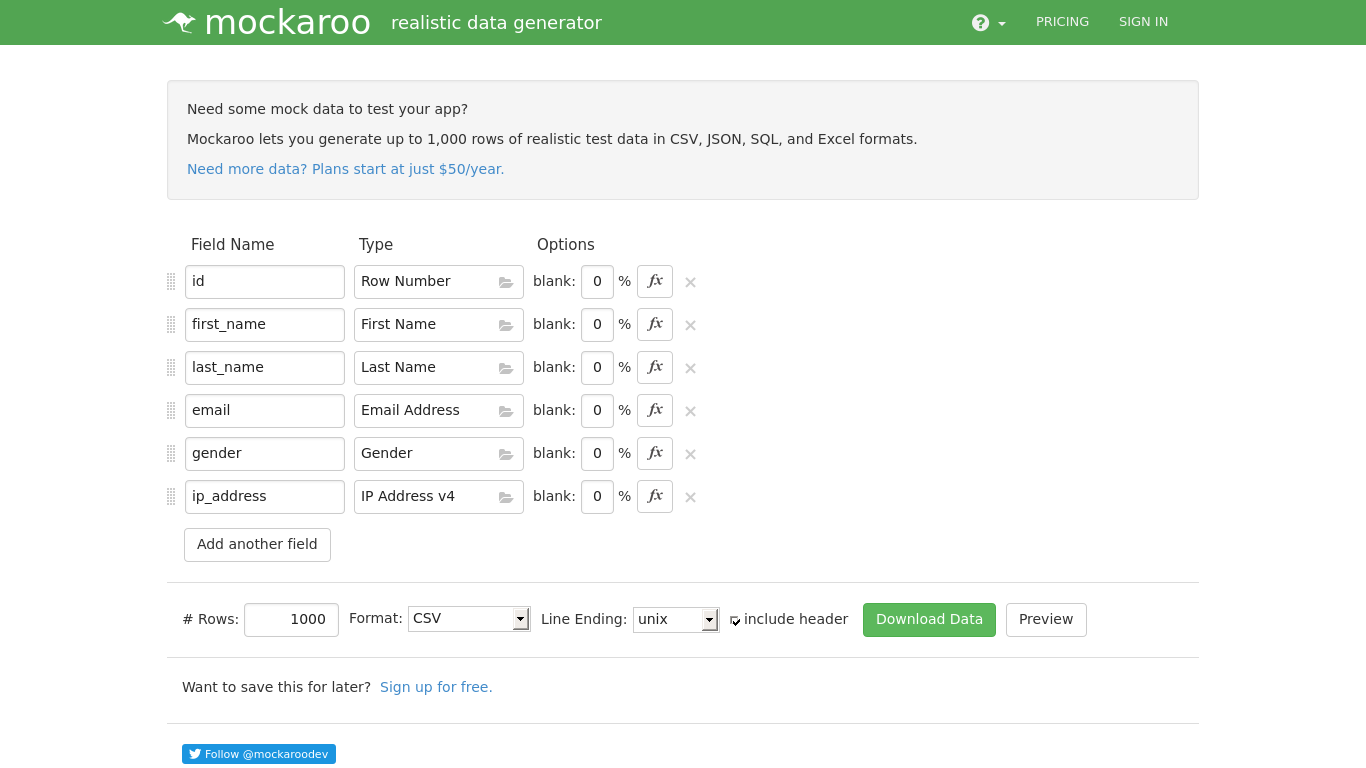

Then using that model, Tonic will transform your data in flight and hydrate the separate output database with secure de-identified data, but it preserves all the utility and complexity of the original data. And once you've connected to your database, you build a model of your data. And we support a long list of databases from Postgres to Redshift, to MongoDB, which we recently launched. With Tonic, the way it works is you connect directly to your database. So our core use case from the start has been enabling developers with useful, safe test data that looks and feels real because it's made from production data. And when you combine that de-identification, you can also call it anonymization, obfuscation with our database subsetting and synthesis capabilities, what you get is what we are calling data mimicking. So a big part of what Tonic enables is secure de-identification. Where Mockaroo is rule-based and can also equip developers with rules-based data, Tonic generates data based on your existing data by using your data as a seed. We were looking to solve for a problem that our founders had run into in their own careers, which is specifically the problem of having production data that is too sensitive to share with developers for use in testing and development. At the same time, we also set out to do things a little differently.

When Tonic was founded, Mockaroo was already a leading tool in the space and our co-founders reached out early on to Mark to learn more about his experience and his success as well. You can compare techniques, learn new tips and Mark also hops in there as well to answer questions sometimes. If you haven't already checked it out, I highly recommend it. And it also has a very active community online. Mockaroo has thousands of users, from development teams of one to enterprise customers like Salesforce.

Mockaroo doesn't require any seed data to start with, it's really useful when you're building a brand new application and you don't have any data to work with, or maybe you need to spin up massive datasets for load testing.Īnother common use case is creating realistic mock datasets for sales demos. So for example, maybe you need birth dates specifically between 19, or you need to manage the categorical frequency of male to female to null across the dataset. In other words, it allows users to define the rules of the data they need and then generates the data based on those rules. The key distinction of its approach to data generation is that it employs rules-based data synthesis.
Mockaroo data generator software#
It's also got several paid tiers, including an enterprise tier that allows you to deploy the software on-prem. You can just hop online and quickly spin up smaller datasets on the fly.
Mockaroo data generator free#
It's got an extremely intuitive UI, it's got a free tier.
Mockaroo data generator generator#
Many of you are probably already familiar with Mockaroo, it's the online data generator that allows you to create mock data from scratch. So first, before getting to the questions, I'm going to provide a quick high-level overview of Mockaroo and Tonic and kind of the key difference between them that defines the use cases for each tool. So please send them my way in the chat or in the Q&A at any time, I'm going to try and ask them as they come up because we really want to make this as much of an audience-led conversation as possible. We've got a lot of great questions already lined up to ask them, but this is the perfect time to say that we really want to hear your questions. We're very glad to have Mark Brocato, founder and CTO of Mockaroo and Andrew Colombi, co-founder and CTO of Tonic joining us today to share what they've learned. Before I introduce those platforms, I'd like to introduce you to our speakers. And today, we're going to focus our talk on software architecture, specifically the choices that were made in building two fake data generation platforms from the ground up. My name is Chiara, I'm on the marketing team at Tonic.

And welcome to today's conversation with the CTOs of Mockaroo and Tonic.


 0 kommentar(er)
0 kommentar(er)
